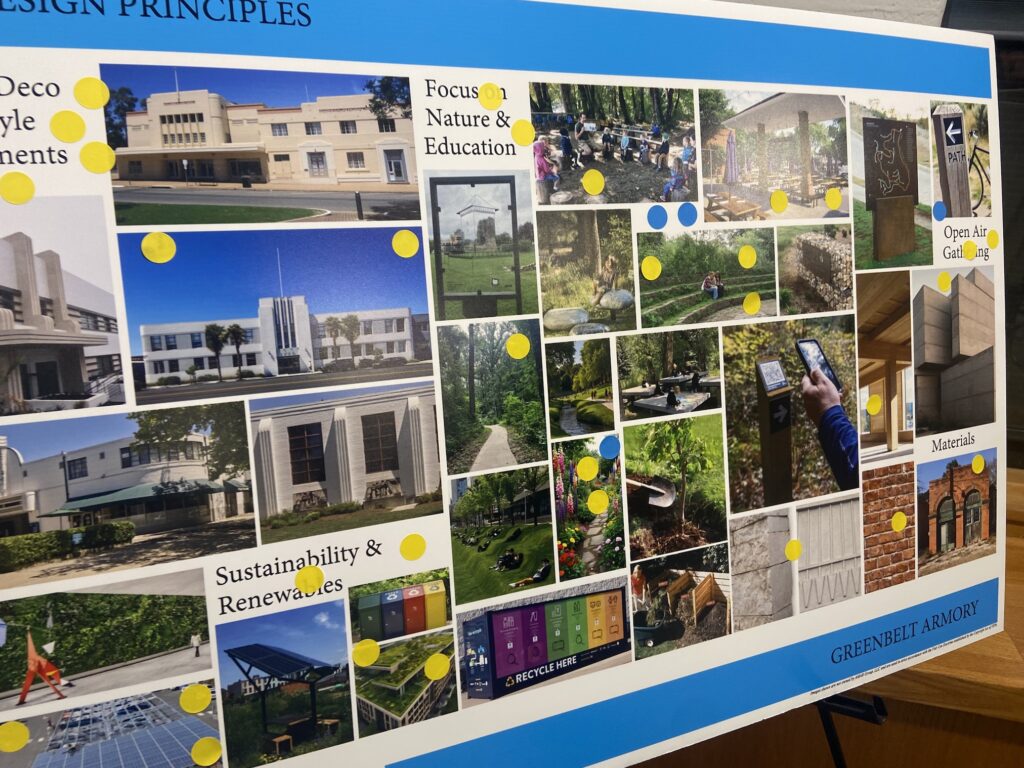Note: This article draws from reliable sources, including the CDC and the Johns Hopkins Whiting School of Engineering website, which in turn references the World Health Organization and official sources of information in a variety of countries. The information contained in this article should not be construed as medical advice and each individual is urged to educate themselves, seek medical treatment if required, and remain aware and take reasonable precautions as the epidemic evolves.
Watching the coronavirus outbreak has become an opportunity for concern and questions for many people. No longer is this disease something happening in a faraway place, but it has arrived near Greenbelt. On March 10, Prince George’s County Executive Angela Alsobrooks announced that the county confirmed its first three positive cases of novel coronavirus, COVID-19. One case was confirmed March 9, she said, and two were confirmed the next day. Alsobrooks outlined the actions the county government has taken to prepare for this situation. She said that the county urges “residents to remain calm and to stay informed, as Prince George’s County is prepared and well-equipped to handle this.” What are some important things Greenbelters need to know about the coronavirus?
During Tuesday night’s council meeting (March 10), City Manager Nicole Ard noted that the city had already stepped up its sanitizing procedures around city buildings and noted that senior activities were most likely to be affected by cancellations. She encouraged residents to check the city’s website for updated information – especially for senior classes. She noted that state and county governments were in the lead on decision making but confirmed that all senior meals programs operating in the city would continue to operate at this time.
Vulnerability
The mortality rate and susceptibility to infection are both age related, with small children rarely becoming ill and the likelihood of getting sick from exposure seemingly increasing with age. Older people are both more likely to get the illness, and are also more likely to die of it.
This age bias is based on a report that uses preliminary data from Chinese health authorities. (see statnews.com/2020/03/03/who-is-getting-sick-and-how-sick-a-breakdown-of-coronavirus-risk-by-demographic-factors ). There is some speculation, however, that children do catch the virus but the effects may be much less serious than in others. At least as big a factor (and highly correlated with age) are underlying conditions that affect the ability to fight off infection – heart and respiratory conditions are particularly problematic.
Greenbelt
The demographics of the outbreak are highly relevant to our community. Given the average ages of residents in different parts of the city, if the virus took a solid grip here, mortality rates would likely differ widely among the center, east and west of the city. In particular, Old Greenbelt has been designated a Naturally Occurring Retirement Community on the basis of the average age of its residents – indicating a high percentage of residents over 60. Residents of Greenbelt West and East are characteristically much younger – with young families comprising the bulk of Franklin Park’s community, for example. The demographic profile of central Greenbelt suggests it could be significantly affected.
Precautions
Who should take what precautions and when should precautions start? Each individual, beyond compliance with any government-mandated action, has choices to make.
Each individual can decide how much to do to reduce their risk – and it makes sense to do it in proportion to their risk. Statistically, a young healthy person has the least risk, whereas an older person, especially one with a chronic health condition, has a higher risk of serious illness and death.
Each has a responsibility to the community to avoid passing on the illness, even if their personal risk is low. Those more exposed should avoid contact with those most vulnerable. The approaches below come recommended by CDC and others to avoid infection and prevent its spread.
- Handwashing – use soap, wash backs and fronts of hands, pay attention to the nail beds and fingernails and between the fingers and the thumb and up onto the wrists. Here is one of many handwashing tutorials available online: bbc.com/news/av/ health-51637561/coronaviruswatch-how-germs-spread
- Avoid touching any mucous membranes, including eyes, nose and mouth, as these are doorways to infection.
- Avoid where people congregate. This means planes, buses and trains, taxis or ride services, restaurants, theaters, churches, classes, doctors’ offices and hospitals for elective visits.
- Avoid touching surfaces that others touch or wash hands after touching. Examples are stair rails, doorknobs, elevator controls, restaurant tables and seats.
- Wearing a mask does little to prevent an individual from getting sick. Health workers wear them to prevent health-worker-to-patient transmission.
- Those caring for others should ensure they are equipped with suitable personal protective equipment to avoid patient-to-patient transmission. Care providers should be asked what they are doing to prevent transmission.
“This is a rapidly evolving situation and information will be updated as it becomes available,” said Dr. Ernest Carter, Prince George’s County health officer. “We are working to ensure that Prince George’s County residents are informed and are conducting important, everyday actions to prevent the spread of respiratory illnesses.” The County’s Emergency Operations Center (EOC) and Joint Information Center (JIC) have been escalated since March 4 to a partial activation level to respond to the evolving situation. This was prior to the first confirmed case in the county. This activation allows the county to continue taking appropriate steps to help keep Prince Georgians safe and healthy. County residents can call the County’s Health Department hotline with questions or concerns at 301- 883-6627.
Those interested can learn about a historical example of how a locality dealt with a communicable disease and quarantine by reading about the village of Eyam in Derbyshire, England, which self-quarantined in the year 1665 when the plague arrived from London in a bale of woolen cloth infested by fleas (bbc.com/news/uk-england-35064071). There is also a novel based on Eyam and written by Geraldine Brooks – A Year of Wonders.
At the Community Center
The Senior Lounge and Game Room are closed through Sunday, March 22.
SAGE classes are canceled through Friday, March 13 and are off for spring break next week. See page 3 for updates on the Senior Nutrition program.
Holy Cross programs are cancelled for the rest of March.
For the latest information visit the city website or call the weather hotline 301-474- 0646.
Reliable Sources Of Information
Johns Hopkins Whiting School of Engineering has a frequently updated website that contains information on global cases and their outcomes at arcgis.com/apps/opsdashboard/index.html#/bda7594740fd40299423467b48e9ecf6.
The Centers for Disease Control maintains a site that has advice on how to prepare at cdc.gov/coronavirus/2019-ncov/index.html. They maintain a separate website on seasonal influenza; COVID-19 is not seasonal influenza.
Information and updates about COVID-19, in addition to preparation and actions taken by the Prince George’s County Government, are available at health.mypgc.us/coronavirus.
The City of Greenbelt posted a fact sheet in February and we anticipate updates will occur as required at greenbeltmd.gov/Home/Components/News/News/90/16.



